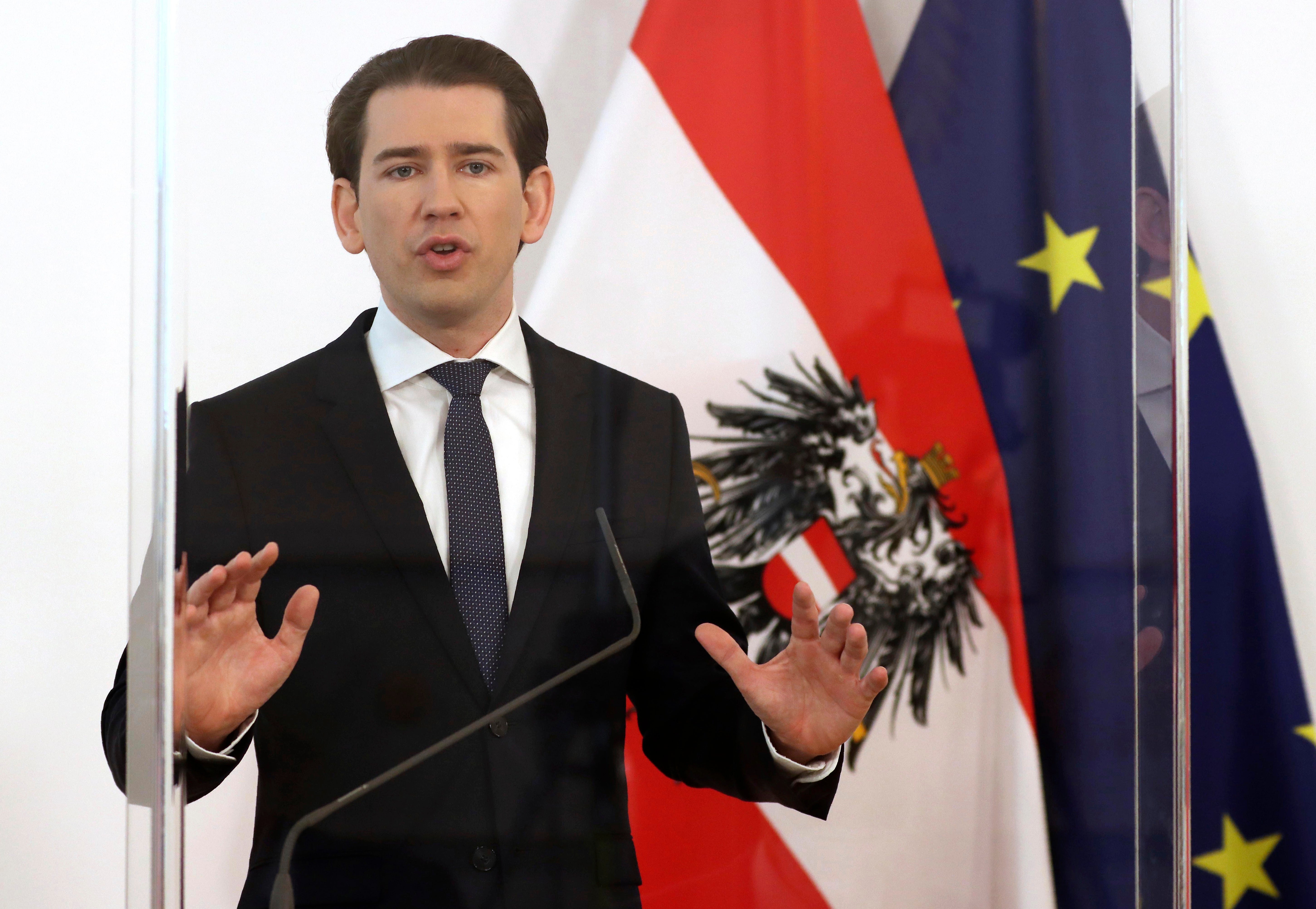Austria to restrict movement from Tyrol over variant fears
Austria’s leader says people will have to produce a negative coronavirus test to leave the country’s Tyrol province as authorities try to prevent the spread of a coronavirus variant first discovered in South Africa

Austria s leader said Tuesday that people will have to produce a negative coronavirus test to leave the country s Tyrol province as authorities try to prevent the spread of a coronavirus variant first discovered in South Africa.
Some 293 cases of the more contagious variant have been confirmed in Tyrol. More than 120 of those cases are currently active, Austrian Chancellor Sebastian Kurz said. Concentrated in the Schwaz district, east of Innsbruck, they represent he biggest known current outbreak of the variant in the European Union, authorities said.
Officials in Tyrol initially resisted restrictions, but on Monday drew up a list of measures that included more police checks on mask-wearing and social distancing, and a requirement for negative antigen tests before people can use cable cars and ski lifts.
The federal government in Vienna also warned Austrians on Monday against traveling to the province as schools, shops, hairdressing salons, museums and zoos reopened across the country after a roughly six-week lockdown.
Kurz said Tuesday that for 10 days starting Friday, people wanting to leave Tyrol -- a popular skiing region which borders Germany, Italy and Switzerland -- will have to show a negative coronavirus test produced within the previous 48 hours.
Police, with support from the military, will enforce the new rule on the roads, Kurz said. He also called for Tyrol to act to ensure the variant doesn’t spread further within the province.
The measure won't apply to East Tyrol, a part of the province that is separated from Tyrol proper by a sliver of another Austrian province and Italian territory and is relatively unaffected, Kurz said. He said Friday was chosen as the start date to allow time for preparations and because a “mad rush and chaos” wouldn't be helpful.
The chancellor pointed to preliminary results from a small study that showed the Oxford-AstraZeneca vaccine, one of the three vaccines cleared for use in the EU, was only minimally effective against mild to moderate cases of COVID-19 caused by the South African variant.
“That is a big problem because nearly 50% of the vaccine we will have delivered by the summer comes from AstraZeneca,” Kurz said. “So...we must do everything to prevent the spread of this variant, and if that doesn't succeed, at least to slow its spread.”
“If a mutation like the South African one spreads quickly and strongly, that will cost a lot of people their lives and the road to normality will be delayed again by months,” the chancellor told reporters in Vienna.
Austria's initial response to the Tyrol outbreak drew criticism in neighboring Germany. Ahead of Tuesday's announcement, a senior official in Bavaria's main governing party said that “from our point of view, what Austria is doing is irresponsible.”
“To be honest, it's a farce — on one hand issuing a warning to their own population against travel to Tyrol province, and on the other hand easing (restrictions) in the whole country, including in Tyrol,” Markus Blume, the general secretary of the Christian Social Union party, told German news channel n-tv.
Tyrol is home to the ski resort of Ischgl, the location of what is considered one of Europe's earliest “super-spreader” events of the pandemic nearly a year ago. An independent commission later found that regional authorities acted too slowly to shut down ski resorts.
___
Geir Moulson reported from Berlin.
___
Follow all AP stories on the pandemic at:
https://apnews.com/coronavirus-pandemic
https://apnews.com/hub/coronavirus-vaccine
https://apnews.com/UnderstandingtheOutbreak
Bookmark popover
Removed from bookmarks